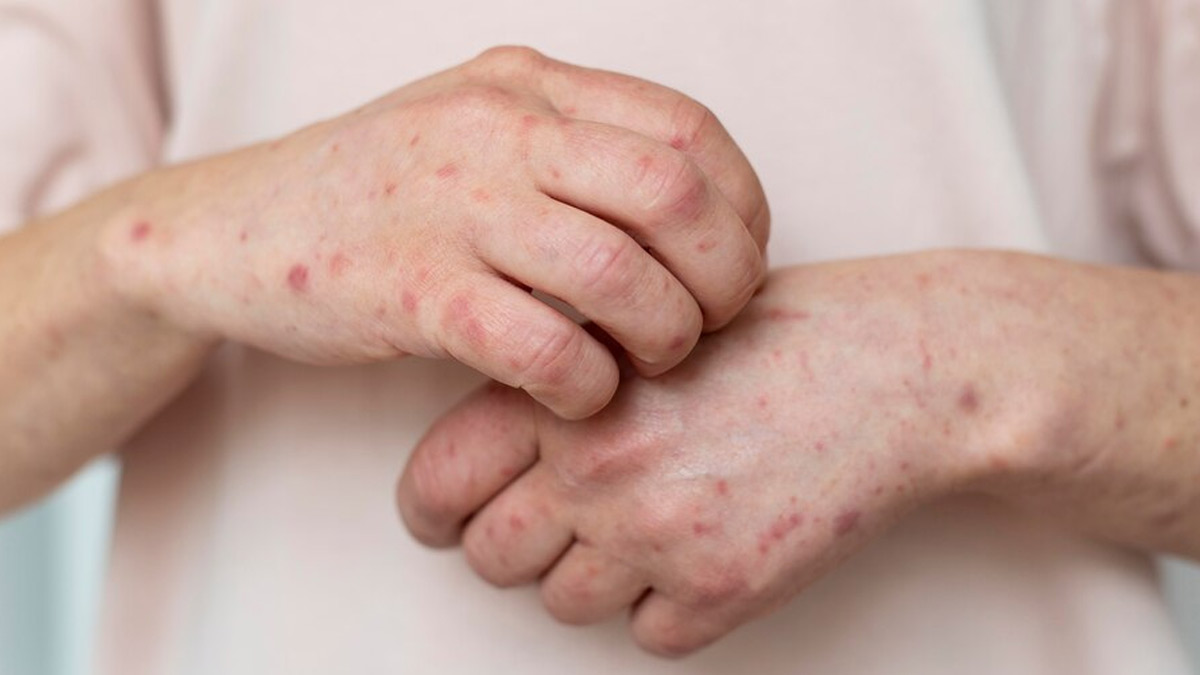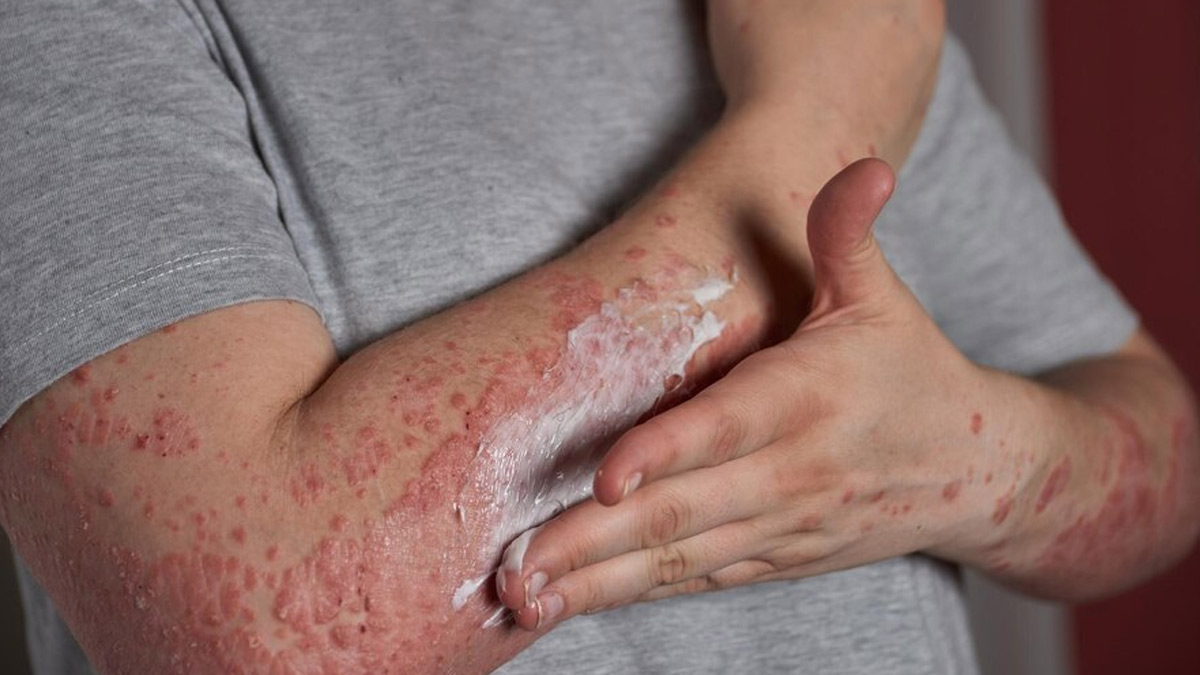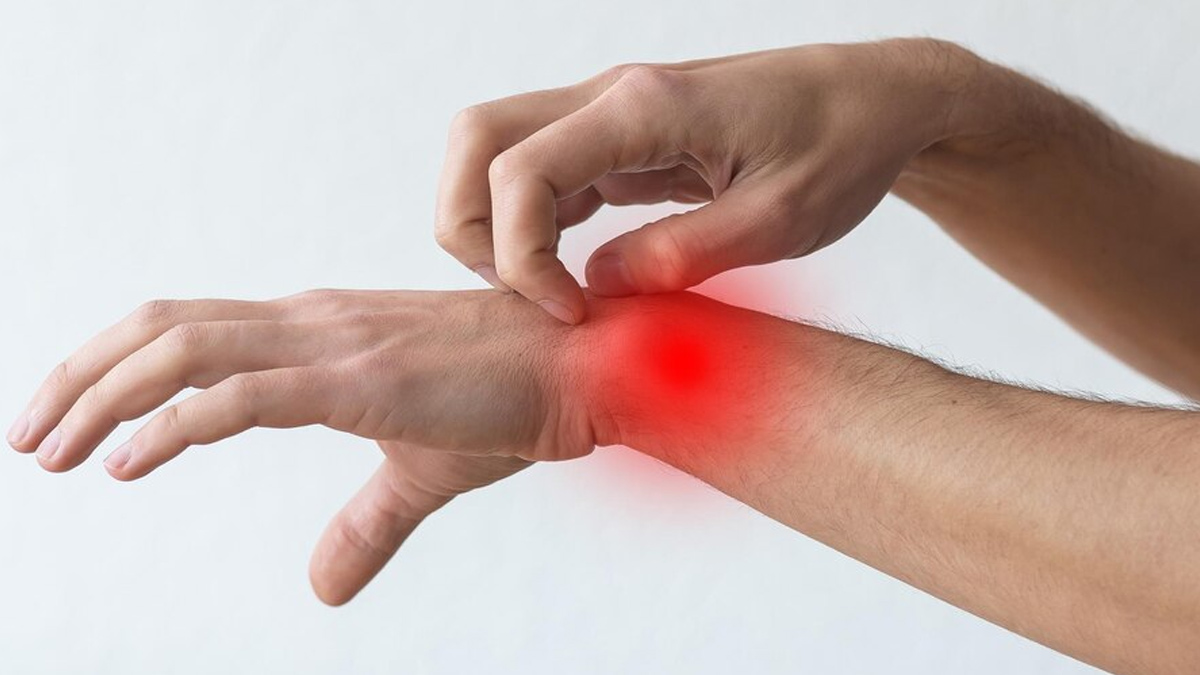
Eczema, or atopic dermatitis, is a chronic skin condition that has a lifetime prevalence of about 15–30% in children and 2-10% in adults, as per StatPearls Publishing. Surprisingly, about 60% of the cases will develop within the first year of life.
Table of Content:-
According to Dr Pallavi Singh, Consultant Dermatologist, Max Multi-Speciality Centre, Panchsheel Park, eczema can be either caused by genetic and intrinsic factors (endogenous) or environmental factors (exogenous). While dry skin and compromised skin barrier are some of the most common causes of endogenous eczema, irritants and allergens, such as nickel, detergent, fragrance, and environmental factors, such as ultraviolet (UV) radiation, are common causes of exogenous eczema, says Dr Singh.
If you’re someone who has eczema, understanding and being fully aware of the condition is of utmost importance, as it may aid in receiving proper and appropriate treatment. Here are a few interesting facts everyone should know about it.
Eczema Has Several Different Types

Eczema is not just one condition, but rather an umbrella term for a group of skin conditions. According to the US National Eczema Association, there are seven different types of eczema. These include:
Atopic dermatitis: This is the most common form of eczema, according to the American Academy of Dermatology Association (AAD). It causes inflammation, dryness, and itchy skin.
Contact dermatitis: This form of eczema, also called allergic contact dermatitis, can be triggered by environmental factors.
Dyshidrotic eczema: This type of eczema dries out the skin, leading to a burning sensation, rashes, and blisters.
Neurodermatitis: Also called discoid eczema, neurodermatitis affects small patches of skin, causing itchiness and scaly patches.
Nummular eczema: Also called nummular dermatitis, this form of eczema forms small, rounded lesions all over the body, especially on arms and legs.
Seborrhoeic dermatitis: This is an inflammatory form of eczema that affects your scalp.
Stasis dermatitis: Stasis dermatitis leads to skin discolouration on the legs, which looks similar to varicose veins.
Who Is At Risk?
According to the American College of Allergy, Asthma, and Immunology, eczema is most often hereditary, and about 60% of those with eczema will experience symptoms by age 1, whereas 30% will develop symptoms by age 5.
Those born into families with a history of allergic diseases such as asthma or hay fever are at increased risk of developing eczema.
Eczema Is Not Contagious

Usually, when we come across painful-looking skin rashes, we assume that they are contagious. But that is not the case with eczema. Dr Singh says eczema is not contagious and cannot spread from one person to another. However, she notes that it can flare up and spread in the same individual as the condition worsens.
Not All Eczema Is Atopic Dermatitis
It is important to understand that atopic dermatitis is a common form of eczema that presents with itching and a rash over the skin. However, not all eczema is atopic dermatitis, says Dr Singh.
Scratching May Worsen Eczema

Most skin conditions flare up when scratched or constantly touched. When it comes to eczema, scratching worsens the symptoms by perpetuating them further. Moreover, it creates cracks and fissures in the skin, making it more susceptible to infection.
Can Eczema Be Cured?
Unfortunately, there is no cure for eczema. While there are treatments, they can only help manage the condition but cannot completely eliminate it. It is important to identify the type of eczema and address the underlying issues. Moreover, one must avoid triggers and use gentle and sensitive skin moisturisers throughout the day. Consulting a dermatologist may give you a good understanding of your treatment options, depending on the severity of your condition.
How we keep this article up to date:
We work with experts and keep a close eye on the latest in health and wellness. Whenever there is a new research or helpful information, we update our articles with accurate and useful advice.
Current Version